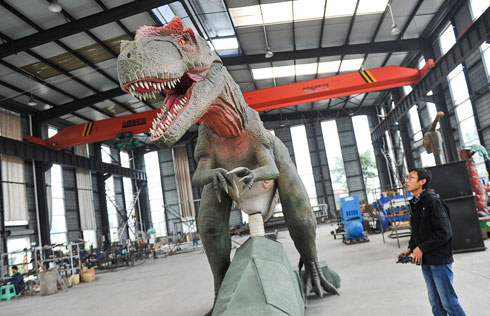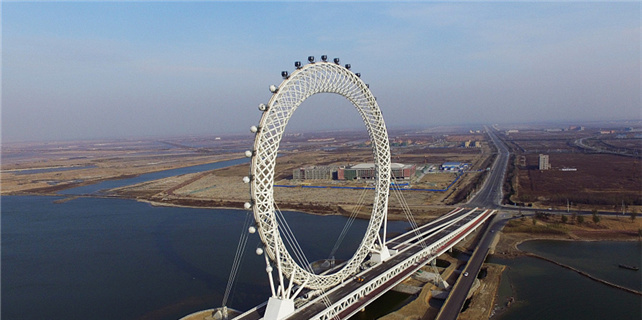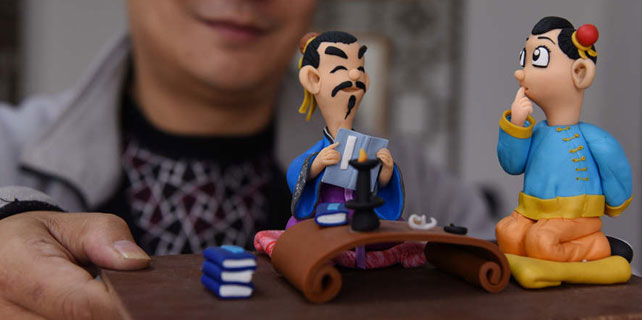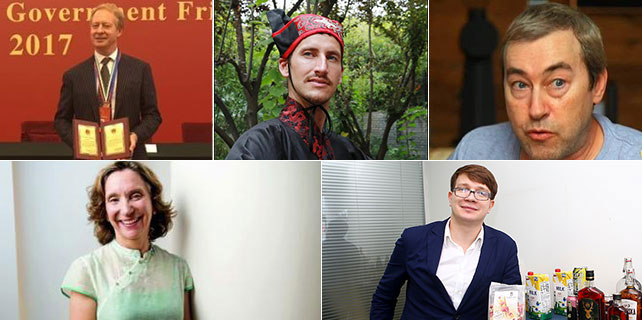Widow who saved epileptic boy fears for his future
Retiree helped 21 infants lost or abandoned at Harbin Railway Station
Every day Yang Shuxiang takes her adopted son Yang Shaolin, nicknamed Dabao, for a trip in Harbin, Heilongjiang province.
It is the happiest time for Dabao, 38, especially when they ride around aimlessly in a bus.
Dabao has a mental disability, and raising him has been a journey of joy and heartache for Yang. He was the first of 21 children she saved.
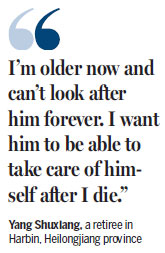
They are all children who got lost or were abandoned at Harbin Railway Station where she worked.
The others she took care of at home until she tracked down their parents or put them into a children's home. Dabao is the only one who has remained.
"I still remember it was on Oct 2, 1979, that I found an unattended package, wiggling gently and emitting a baby's cries, on a seat in the mother-and-child room," said Yang, 62, now retired.
"As a passenger clerk on duty, I went immediately to check on it."
It was a baby boy just months old. Yang and her colleagues searched for his parents, in every corner of the station, but nobody came to claim him. Out of pity and charity, Yang took the baby home.
"Almost all my friends and relatives urged me to send him away as soon as possible," Yang said.
"Fortunately, my husband and mother gave me support."
Yang's mother moved in to help care for the boy. Their plan was to find his parents with the help of police, the local civil affairs department and the media.
Yet one year later, they still had no leads.
"By that time we had built a deep relationship with him," she said. "We decided to adopt him."
Dabao became a full member of the family after formal procedures. Yet the happiness was short-lived. At the age of 2, the infant had yet to speak.
He was glassy-eyed and twitched constantly.
An assessment at hospital in Beijing revealed the cause as cortical dysplasia, a congenital condition of brain malformation with attendant epilepsy.
Yang recalled with anguish the day she was informed: "He was so cute when I found him. I never imagined he would grow up sick."
Under pressure from the people around them, Yang's husband and mother started to waver.
"They tried to persuade me to give up Dabao and have my own baby," Yang said.
"But he had been abandoned once. How could I be so cruel as to abandon him again? What he really needed was more love and care."
Finally, her husband relented and agreed that they raise Dabao together.
This brief moment of hesitation aside, Yang's husband was her biggest supporter, right from the days when she became known as the person to go to with an abandoned child.
"At one point we were raising two infants and four children in our 12-square-meter bungalow," she said.
"We even thought about running an orphanage. But it would have been too much, given our limits with space and money."
She sent 13 children to welfare homes, and seven were returned to their parents. "Some of them later came back to visit, and we would get together for a family meal. I never felt regret about the sacrifices I made," Yang said.
Her main fear now is for Dabao's future. Traditional Chinese medicine has proved successful at treating his epilepsy, and since the age of 10 he has been able to speak a few simple words.
Yet since her husband died of cancer in 2006, she has been raising their adopted son alone.
"He asked me to take good care of Dabao before he died," she said. "I promised him I would never abandon our son, no matter what difficulties we face."
Now Yang's wish is to find a special education class that can teach Dabao how to be self-sufficient.
"I'm older now and can't look after him forever," she said.
"I want him to be able to take care of himself after I die."
Contact the writers at zhouhuiying@chinadaily.com.cn
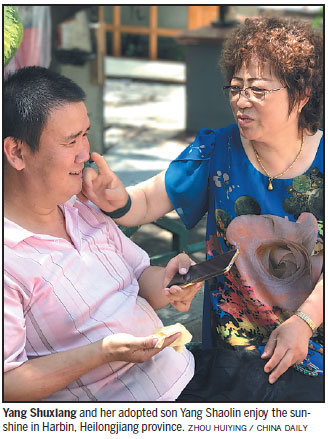
(China Daily 12/01/2017 page7)



